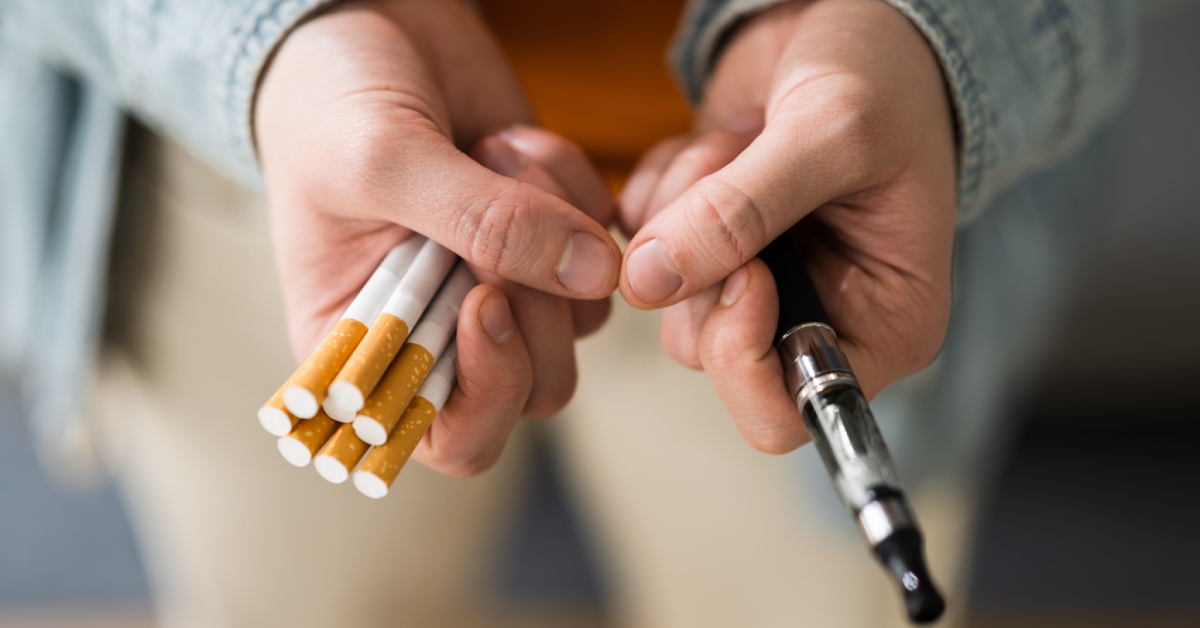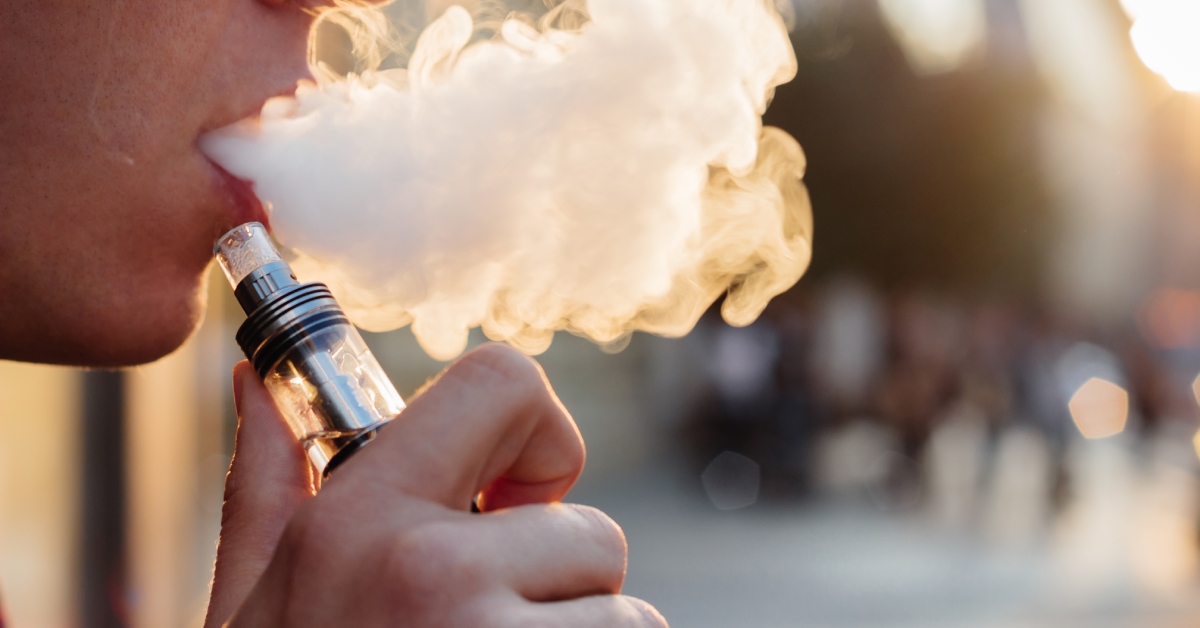
Even though people use their mouths for important activities—such as talking and eating—many still ignore how certain choices can affect their oral health. One choice that can be particularly harmful is to smoke cigarettes or vape using e-cigarettes. This blog will explore the impacts of smoking and vaping on oral health so you can understand the consequences and make informed decisions about your habits.
Mouth Cancer
The increased risk of developing mouth cancer is one of the most severe consequences of smoking. Tobacco smoke contains carcinogens that can mutate the cells in the mouth, leading to cancerous growths. This type of cancer often manifests as sores, lumps, or rough patches in the mouth and can affect the lips, tongue, and throat.
Gum Disease
Gum disease, also known as periodontal disease, is another significant concern for smokers and vapers. For example, because smoking can be detrimental to the immune system, you may find it harder to eliminate gum infections.
The chemicals in tobacco can also lead to the development of gingivitis, characterized by red, swollen, and bleeding gums. Periodontitis may quickly follow the onset of gum diseases, which may result in the loss of teeth and bone.
Vaping can also contribute to gum disease by drying out your mouth and causing the growth of more bacteria. You may even develop an infection that will result in you developing gingivitis or periodontitis. Instead of putting yourself at risk with these conditions, make sure you drop your smoking or vaping habit as soon as possible.
Tooth Decay

Tooth decay is another dangerous impact of smoking and vaping on oral health. By engaging in one of these habits, you can hurt your enamel, making your teeth more susceptible to decay-causing bacteria.
The sugar and acidic ingredients in cigarettes can also put you in danger of experiencing tooth decay. In addition to quitting smoking or vaping, make sure you seek regular dental check-ups and fluoride treatments and perform good oral hygiene practices to maintain your oral health.
Delayed Healing
Delayed healing is another prevalent issue among individuals who smoke or vape. Nicotine can slow blood flow and oxygen as it makes its way into your tissues. This side effect impacts your ability to quickly heal from oral wounds, such as those from dental procedures or minor injuries.
Additionally, smoking and vaping can impair the immune response, making it more challenging for the body to combat infections and inflammation. We highly recommend reducing or eliminating smoking and vaping for optimal recovery and to promote overall oral health.
Tooth Loss

These habits can also lead to the severe consequence of losing teeth. The combination of gum disease, tooth decay, and weakened bone structure can lead to tooth loss. The harmful chemicals in tobacco weaken the bone and connective tissues that support the teeth, making them more prone to falling out.
Therefore, it is best to stop smoking or vaping today. Afterward, make sure you follow up with an appointment with a dentist who can advise you on the best ways to take care of your teeth.
Leukoplakia
Smoking or vaping can also lead to leukoplakia, which is a condition where you can develop white patches on your gums, tongue, or the sides of your mouth. Although most cases of leukoplakia do not lead to oral cancer, it still can be an early indicator of this deadly disease.
Quitting smoking and vaping can significantly reduce the risk of developing leukoplakia. Additionally, obtaining regular dental check-ups and performing self-examinations are crucial for detecting this disease early and monitoring any changes.
Tooth Discoloration
Tooth discoloration is a common issue both smokers and vapers face due to the staining properties of the substances they inhale. Tobacco smoke can result in an unsightly yellow color marring the whites of your teeth.
Similarly, vaping liquids often contain nicotine and other chemicals that can cause teeth to develop a dull, stained appearance over time. These chemicals hurt the look of your mouth and contribute to a perception of poor oral hygiene.
If you have given up smoking or vaping, consider obtaining a cleaning by a dental professional to address the discoloration of your teeth. Your dentist can also recommend whitening products to restore the natural brightness of your teeth.
Lesions
Your tobacco habits can also lead to oral lesions, which are sores or ulcers that develop in the mouth. The chemicals in tobacco smoke and e-cigarette vapor can cause these to develop and make eating, drinking, and speaking uncomfortable.
Chronic exposure to irritants from smoking and vaping can cause persistent lesions that may take longer to heal. These lesions can sometimes become infected, leading to further complications. Reducing or eliminating smoking and vaping can prevent the development of oral lesions and promote healing of existing sores.
Damage to Your Senses
Two of your senses may also experience detrimental effects. For example, the chemicals in tobacco smoke and e-cigarette vapor can dull the taste buds, reducing the ability to taste. As a result, you may find yourself experiencing decreased enjoyment of your meals.
Additionally, smoking can damage the olfactory receptors in the nose, impairing the sense of smell. This type of damage can affect your ability to detect odors and may lead to a decreased ability to enjoy scents.
Vaping can also contribute to a diminished sense of smell, although the extent of the damage may vary depending on the ingredients in the e-liquids. By quitting these habits, you will preserve your teeth and protect the senses that allow you to enjoy fulfilling life experiences.
As we’ve seen, smoking and vaping can be incredibly detrimental to your health and your ability to experience all the benefits that life has to offer. It is best to give up these habits now. If you haven’t smoked or vaped before, you should continue to stay away from them.
Pinnacle Dental Associates can help if you’ve experienced tooth loss after years of smoking and vaping. We offer high-quality dental implants in Albany, Oregon, that will improve your ability to chew food and help your mouth feel like it is back to normal again.
